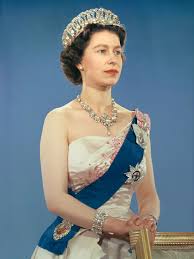
Introduction
Prince Harry, Duke of Sussex, has made headlines globally for his actions and statements that have reshaped perceptions of the British Royal Family. His journey from a beloved public figure to a prominent advocate for mental health and social issues marks a significant change in the royal narrative. As a member of the royal family who has stepped back from official duties, Harry’s decisions spark ongoing conversations about tradition, privilege, and mental health.
Harry’s Royal Life
Born on September 15, 1984, Prince Harry is the younger son of Charles, Prince of Wales, and the late Diana, Princess of Wales. He served in the British Army for a decade and undertook two tours in Afghanistan. His military service was a defining aspect of his identity, earning him respect and admiration.
The Duke and Duchess of Sussex
Harry’s marriage to Meghan Markle in May 2018 was celebrated worldwide, but the couple faced intense media scrutiny that later contributed to their decision to step back from royal duties in early 2020. Since relocating to the United States, Harry and Meghan have focused on various charitable initiatives, including their mental health platform, ‘Archewell,’ which aims to address issues related to mental health, misinformation, and community support.
Recent Developments
Amid ongoing public interest, Harry’s recently released memoir, ‘Spare,’ has created a stir with its candid exploration of his life experiences, familial relationships, and struggles with mental health. Readers have responded positively to Harry’s openness regarding his traumas, particularly related to the loss of his mother, bringing forth discussions about the impacts of grief, trauma, and the pressures of royal life.
Furthermore, Harry’s involvement in various advocacy efforts, including those surrounding veterans and mental health, is reshaping the perceptions of what it means to be a royal. He continues to challenge the stereotypes and expectations of royal behavior, actively encouraging discussions about mental health and seeking to destigmatise vulnerability.
Conclusion
As Prince Harry forges his path away from royal traditions, his influence remains significant both within the UK and globally. His advocacy for mental health and social issues resonates with a contemporary audience eager for authenticity and openness in public figures. The future of Harry’s role as a public advocate seems promising, as he is likely to continue reshaping the narrative surrounding the royal family and maintaining relevance in a rapidly changing world.
You may also like

Ciaran from Love Island: Age and Background Insights

Prince William: Legacy and Modern Influence in the Royal Family

Queen Elizabeth: Her Legacy and Influence on Modern Britain
SEARCH
LAST NEWS
- Remembering Wendy Richard: The Promise to Co-Star Natalie Cassidy
- How Did Anglian Water Achieve an ‘Essentials’ Rating for Mental Health Accessibility?
- Shai Hope Leads West Indies in T20 World Cup Clash Against South Africa
- What We Know About Weston McKennie: Future at Juventus and Past at Leeds
- What We Know About the Upcoming Live Nation Antitrust Trial